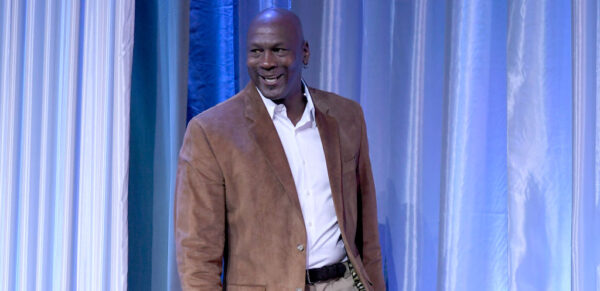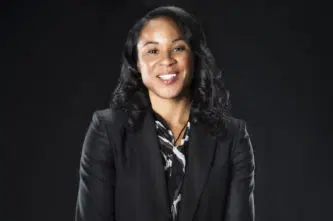In the world of business, there are few decisions as bold as turning down Michael Jordan. But for C. David Moody Jr., president and CEO of Atlanta-based C.D. Moody Construction, that choice was driven by a deep-rooted desire to be in complete control of his company, which today has over $70 million in annual revenues and has completed over 200 commercial projects worth almost $3 billion since its founding in 1988, according to Yahoo Finance.

Speaking on AfroTech’s “Black Tech Green Money” podcast with host Will Lucas, Moody discussed how his journey to becoming one of the largest Black-owned construction companies in the U.S. was defined by independence, discipline, and resilience.
The Big ‘No’
From the start, Moody faced significant hurdles. When Lucas asked him about navigating the challenges of starting a business with limited capital, Moody didn’t hold back.
“My wife and I started with a couple grand we borrowed. … When you start off undercapitalized, I don’t know if you ever get comfortable with it, regardless of how well you do,” he shared. “It’s a lot of mental stuff that you have to adjust to.”
Moody’s caution wasn’t just about the money — it was about his vision.
In the early years, just as his company was beginning to find its footing, he had the opportunity of a lifetime: a potential investment from NBA superstar.
It was the kind of partnership that could have catapulted Moody’s construction business into a new league. But Moody wasn’t ready to give up control.
“I couldn’t have a partner,” he said. “Not because I’m difficult to work with, I just wanted to run my own show.”
As it turns out, turning Jordan down was no easy decision.
“Michael Jordan was going to invest in my company in the early ’90s. I still got the picture where he signed, ‘Congratulations and good luck’ to our construction company,” Moody recalled.
He added, “In the last minute, I went to his financial guy and turned him down. He said, ‘You’re the first person ever to turn him down.’ I turned them down because I wanted to know what I could do on my own.”
In a world where collaboration is often celebrated, Moody’s story highlights the power of clarity in leadership … even as it came with some struggles.
For him, it wasn’t about ego or arrogance; it was about understanding his own limitations and aspirations. While not agreeing to let the billionaire athlete-turned-businessman invest in his company might have seemed like a missed opportunity, it was a step Moody felt he needed to take to preserve his own autonomy.
However, Moody’s path wasn’t without its challenges. About eight months after turning down Jordan, he faced a mental breakdown that nearly cost him everything. “When I think back, people didn’t understand that … and I might have lost my business. They might say, ‘Hey, you’re so messed up, we got to take over,’” he said.
The Morehouse graduate did not go under, and currently stands as one of the largest Black-owned construction companies in America.
The experience taught Moody a valuable lesson: partnerships can work, but only with the right structure.
“Partnerships are great as long as you’ve got all the rules and agreements laid out upfront,” he advised. “I’ve just heard so many horror stories where people didn’t do the paperwork like they should have upfront.”
He emphasized the importance of clear boundaries and roles to avoid conflicts down the line.
Despite missing out on working with Moody, Jordan has not shied away from real estate ventures. In 2020, he opened “The Grove XXIII,” a luxury 227 acre golf course in Hobe Sound, Florida, that caters exclusively to an elite membership, according to Architectural Digest.
Known as “Slaughterhouse 23” for its challenging layout, the course is tailored to Jordan’s competitive nature, featuring fast greens, intricate hole loops, and a 15,000-square-foot clubhouse with Air Jordan-inspired touches like elephant-print glass panels and branded ice cubes.
Jordan’s course has become a haven for high-profile guests, including Tiger Woods, Michael Strahan, and Ahmad Rashad, who enjoy the high-tech amenities, 18 holes, and challenging terrain designed by Nichols Architects. With double-sided driving lanes, customized greens, and other features, it’s a world designed for competitive spirits.
For Moody, the lesson in turning down a legendary partner like Jordan has become part of his legacy. His decision wasn’t about rejecting a partnership for the sake of pride; it was about building something that was truly his.
In a business world where scaling fast and grabbing partnerships can seem like the obvious choice, Moody’s story offers a different perspective: sometimes, the boldest moves are the ones that keep you true to your own vision.




